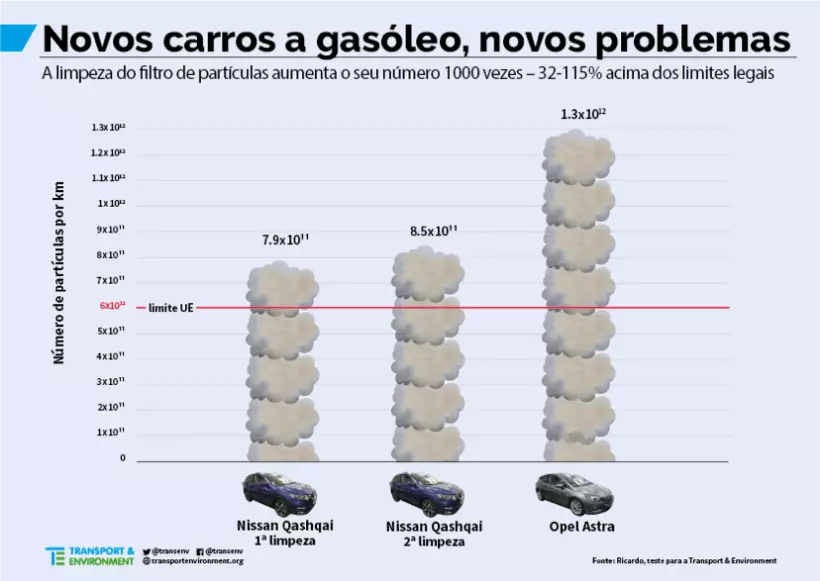“Concerning” is how the environmental association Zero defines the conclusions of this study, published by the European Federation of Transport and Environment (T&E) — of which Zero is a member —, in which it appears that Diesel engines' particulate emissions peak up to 1000 times higher than normal during the regeneration of their particulate filters.
Particulate filters are one of the most important pollutant emission control equipment, reducing the emission of soot particles from the exhaust gases. These particles, when inhaled, increase the risk of cardiorespiratory disease.
In order to maintain their effectiveness and avoid clogging, particulate filters must be periodically cleaned, a process we identify as regeneration. It is precisely during this process — where particulates accumulated in the filter are incinerated at high temperatures — that T&E has seen the peak of particulate emissions from diesel engines.
According to T&E, there are 45 million vehicles with particulate filters in Europe, which should correspond to 1.3 billion cleanings or regenerations per year. Zero estimated that in Portugal there are 775,000 Diesel vehicles equipped with particulate filters, estimating around 23 million regenerations per year.
The results
In this study, ordered from independent laboratories (Ricardo), only two vehicles were tested, the Nissan Qashqai and the Opel Astra, where it was found that during regeneration they emitted, respectively, 32% to 115% above the legal limit for the emission of particles. regulated.

The problem is compounded when measuring ultra-fine, unregulated particulate emissions (not measured during testing), with both models recording an increase of between 11% and 184%. These particles are considered the most harmful to human health, being associated with an increased risk of cancer.
According to Zero, there is a “failure in legislation where the legal limit does not apply when filter cleaning takes place in official tests, which means that 60-99% of the regulated particulate emissions of the vehicles tested are ignored”.
T&E also found that, even after regeneration, a process that can last for up to 15 km and where there are peaks of 1000 times more particulate emissions from diesel engines than regular ones, the number of particulates remains high in driving urban for another 30 minutes.
Despite peaks recorded for particulate emissions, NOx (nitrogen oxides) emissions remained within legal limits.
ZeroThere is no doubt that particulate filters are a fundamental element and provide a huge reduction in the pollution of diesel vehicles, but it is clear that the legislation has enforcement problems and that particulate emissions, namely of fine and ultra-fine particles, are still significant , so that only the gradual withdrawal of diesel vehicles will solve the pollution problems caused by them.
